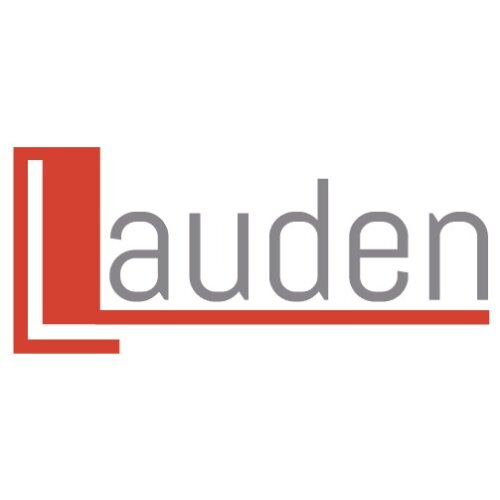Best Structured Finance Lawyers in Quito
Share your needs with us, get contacted by law firms.
Free. Takes 2 min.
List of the best lawyers in Quito, Ecuador
About Structured Finance Law in Quito, Ecuador
Structured Finance in Quito, Ecuador refers to financial transactions designed to manage risk and raise capital, often for complex or high-value projects. It typically involves the pooling of financial assets, securitization, and the use of financial instruments such as bonds, asset-backed securities, and derivatives. Financial institutions, corporations, and even governmental entities in Quito often engage in structured finance to fund infrastructure projects, manage cash flows, and diversify investment risks. The sector operates within the broader framework of Ecuadorian financial regulations and is influenced by both national and international standards.
Why You May Need a Lawyer
Structured finance transactions are intricate, often involving multiple parties, complex legal documents, and regulatory oversight. You may need a lawyer if you are:
- Issuing or investing in asset-backed securities
- Structuring financial products for a large business or real estate development
- Negotiating credit enhancement arrangements or guarantees
- Managing cross-border finance deals subject to differing regulations
- Navigating the legal due diligence process for financial transactions
- Ensuring compliance with Ecuadorian banking, tax, and securities laws
- Addressing potential disputes or defaults related to structured financial agreements
- Seeking to understand the legal implications of market changes or regulatory updates
Legal counsel ensures that your interests are protected, your transactions are enforceable, and your actions comply with all relevant laws.
Local Laws Overview
Structured finance in Quito is governed by several regulatory frameworks, including the Commercial Code of Ecuador, the Law on the Securities Market, and regulations issued by the Superintendency of Companies, Securities, and Insurance (Superintendencia de Compañías, Valores y Seguros - SCVS). Key aspects include:
- Securitization: Regulations exist for the creation and operation of securitization funds, often used for issuing asset-backed securities.
- Banking Regulation: The Superintendency of Banks oversees credit institutions and ensures compliance with capital requirements, lending limits, and risk management practices.
- Securities Issuance: Public and private offerings of securities require registration with the relevant authorities and must comply with disclosure requirements to protect investors.
- Taxation: Tax treatment of structured finance products-and associated transactions-can significantly affect deal structure and profitability.
- Foreign Investment: Transactions involving foreign entities may require additional approvals and are subject to currency control measures.
Understanding this legal landscape is critical for anyone involved in structured finance projects in Quito.
Frequently Asked Questions
What is structured finance and how does it differ from traditional lending?
Structured finance involves creating complex financial products designed to meet specific risk-return profiles or to access alternative funding sources. Unlike traditional lending, it often bundles multiple financial assets or uses off-balance-sheet vehicles.
Who regulates structured finance transactions in Quito?
The primary regulators are the Superintendency of Companies, Securities, and Insurance (SCVS) and the Superintendency of Banks. They oversee compliance, registration, and disclosure requirements for financial products.
Are there legal requirements for issuing asset-backed securities in Ecuador?
Yes, issuers must comply with SCVS regulations, ensure proper registration, provide transparent information to investors, and set up special purpose vehicles as required by law.
What kind of projects can be financed using structured finance?
Common projects include infrastructure development, real estate, corporate expansions, and public-private partnerships. These projects benefit from diversified funding and risk mitigation provided by structured finance products.
Is foreign investment allowed in structured finance deals in Quito?
Foreign investment is generally allowed but subject to registration, reporting, and sometimes currency controls. Legal advice is important to navigate these requirements.
How can disputes in structured finance agreements be resolved?
Disputes can be addressed through negotiation, mediation, arbitration, or litigation, depending on the agreement’s terms and the governing law selected by the parties.
What is securitization and why is it important?
Securitization involves pooling financial assets and selling them as securities to investors. It is important for freeing up capital, reducing balance sheet risks, and accessing new sources of funding.
Are there tax implications in structured finance?
Yes, tax treatment can vary depending on the structure and the types of assets involved. Legal and tax advice is critical to ensure efficient structuring and compliance with Ecuadorian tax law.
What role does due diligence play in structured finance?
Due diligence is essential to assess the quality of underlying assets, confirm legal compliance, and identify potential risks. It is a critical step in any structured finance transaction.
Can individuals participate in structured finance, or is it limited to corporations?
While most structured finance products are designed for institutional or corporate clients, individuals can sometimes invest through specific offerings, typically as part of a larger pool of investors.
Additional Resources
If you are looking for more information or support regarding structured finance in Quito, consider reaching out to:
- Superintendency of Companies, Securities, and Insurance (SCVS): The main regulatory body for securities issuance and enforcement of financial regulations.
- Superintendency of Banks: The authority that supervises banking institutions and credit entities in Ecuador.
- Ecuadorian Association of Financial Markets (Asociación de Mercados Financieros del Ecuador): Provides education and guidance on capital markets.
- Chamber of Commerce of Quito: A resource for businesses seeking information on legal and financial procedures.
- Local law firms: Many law firms in Quito offer consultations and advice on structured finance matters.
Next Steps
If you are considering a structured finance transaction or require legal advice:
- Identify the specific details of your project or investment.
- Gather all relevant financial documents and records.
- Research and contact a legal professional with expertise in structured finance.
- Schedule an initial consultation to discuss your needs, objectives, and concerns.
- Work with your lawyer to ensure compliance, proper structuring, and risk mitigation.
- Stay informed of new regulations or changes to financial laws in Ecuador.
Taking these steps will help you navigate the structured finance landscape in Quito with confidence and protect your interests throughout the process.
Lawzana helps you find the best lawyers and law firms in Quito through a curated and pre-screened list of qualified legal professionals. Our platform offers rankings and detailed profiles of attorneys and law firms, allowing you to compare based on practice areas, including Structured Finance, experience, and client feedback.
Each profile includes a description of the firm's areas of practice, client reviews, team members and partners, year of establishment, spoken languages, office locations, contact information, social media presence, and any published articles or resources. Most firms on our platform speak English and are experienced in both local and international legal matters.
Get a quote from top-rated law firms in Quito, Ecuador — quickly, securely, and without unnecessary hassle.
Disclaimer:
The information provided on this page is for general informational purposes only and does not constitute legal advice. While we strive to ensure the accuracy and relevance of the content, legal information may change over time, and interpretations of the law can vary. You should always consult with a qualified legal professional for advice specific to your situation.
We disclaim all liability for actions taken or not taken based on the content of this page. If you believe any information is incorrect or outdated, please contact us, and we will review and update it where appropriate.














